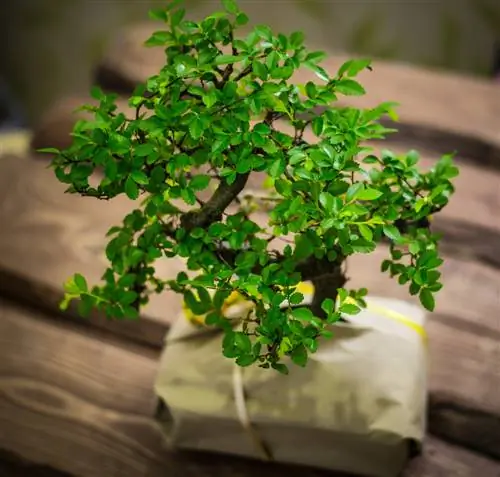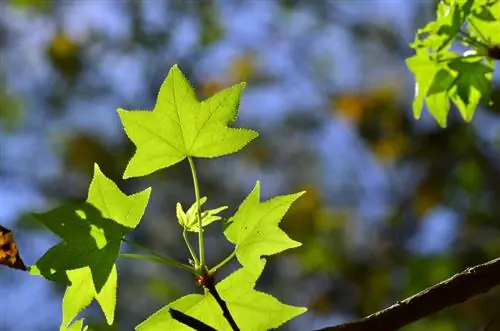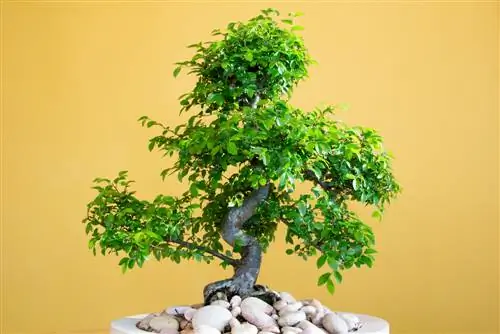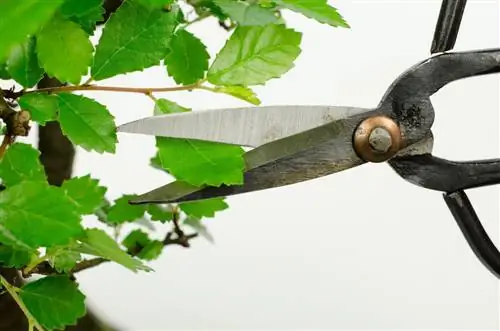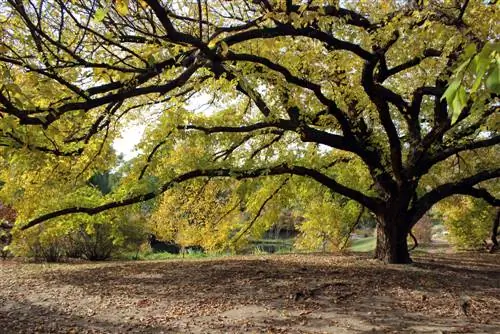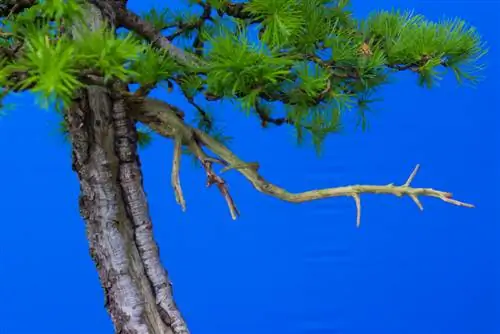- Author admin leonars@hobbygardeners.com.
- Public 2023-12-16 16:46.
- Last modified 2025-01-23 11:21.
Kept small and cut into shape, the elm creates a particularly beautiful picture. You can literally see the amount of care required in the Japanese art of bonsai. The elm also needs a certain amount of attention if you want to keep it as a bonsai. The following article will take you by the hand and provide helpful support on the necessary measures.
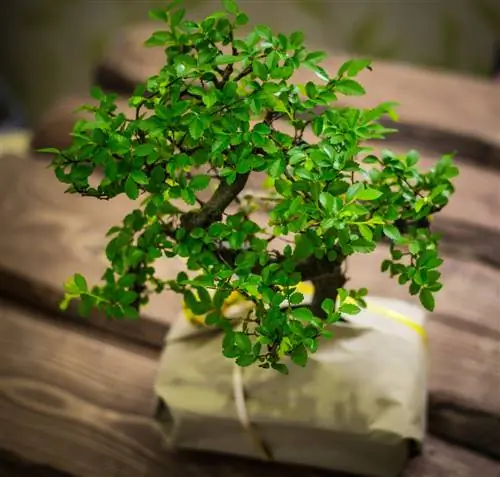
What are the most important care aspects for a bonsai elm?
Caring for a bonsai elm requires the right choice of location, appropriate watering behavior, regular fertilization, pruning and repotting. What is important is a sunny location, not too much water, liquid bonsai fertilizer and repotting with root pruning every two to three years.
Important factors when caring for a bonsai elm
If you want to keep an elm as a bonsai, you must consider the following aspects:
- the choice of location
- the correct watering behavior
- the fertilizer application
- the pruning
- repotting
Demands on the location
Elm trees like it sunny and warm. An outdoor location is therefore recommended, at least during the summer months. The deciduous tree also feels at home on the windowsill. However, sub-zero temperatures damage the plant. When it comes to overwintering, you can choose between a cool location at around 8°C or a warm location at 22°C. The latter choice preserves the foliage of the elm.
Pouring
Before watering, you should allow the substrate to dry thoroughly. This is followed by plenty of water. If your elm constantly grows new leaves at the tips of the shoots but quickly drops them, this is a sure sign that you are overwatering.
Fertilize
- Spring to autumn: every 14 days
- In winter: once a month
As fertilizer, use liquid bonsai fertilizer (€4.00 on Amazon). To protect against pests such as spider mites or scale insects, pesticides or increasing the humidity can help. This can be easily increased by spraying the plant with water.
Cutting
Thinning the crown every two to three years by removing disturbing branches. Cut shoots 6-8 cm long to 3-4 leaves. Additional wiring helps maintain the shape.
Repotting
Because the elm forms strong roots, it needs to be repotted every two to three years. It is advisable to carry out a root cut immediately.

